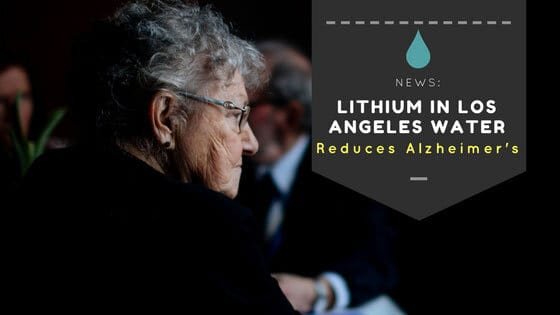Is There Lithium in Los Angeles Water?
Is there lithium in Los Angeles water? And if so, is this a problem?
Lithium is a water-soluble alkali metal found in igneous rocks and mineral springs.
Lithium and its compounds have several industrial applications, including heat-resistant glass and ceramics, lithium grease lubricants, flux additives for iron, steel and aluminum production, lithium batteries, and lithium-ion batteries. These uses account for more than three-quarters of worldwide lithium production.
Lithium is also used in the treatment of bipolar disorder and clinical depression.
Lithium is a naturally-occurring chemical element. And it can be in your water. But the presence of lithium in your drinking water is not necessarily a problem. In fact, just the opposite: the presence of lithium in drinking water has been associated with a decrease in the incidence of Alzheimer’s disease. The presence of lithium in drinking water has also been shown to reduce the incidence of suicide.
A recent study of lithium levels in the drinking water of 234 counties in the state of Texas found that those counties that had above the median level of lithium in tap water (40 micrograms per litre) experienced a lower incidence of Alzheimer’s disease mortality, while counties with lithium levels below 40 micrograms per liter had higher increases in Alzheimer’s deaths over time. The study also found that higher levels of lithium in drinking water also provided some protection against suicide, obesity and Type II Diabetes. These findings confirm the results of previous studies.

How Much Lithium Is In Los Angeles Water?
After the Aliso Canyon gas leak of 2015, which affected the Porter Ranch community, extremely high levels of lithium were detected in the urine samples of a large number of the community’s residents, many of whom experienced nausea and nose-bleeds. But high levels of uranium and styrene, a derivative of benzene, were also detected after the gas leak. It is believed that the presence of these two compounds, rather than the lithium, caused these symptoms since many people are prescribed medical lithium at doses far higher than were detected in Porter Ranch and generally do not experience nausea or nose-bleeds.
The Los Angeles Department of Water & Power (LADWP) doesn’t test for lithium and is not required to. The state’s Water Resources Control Board’s Division of Drinking Water sets the standard, said Joseph Ramallo, a spokesman for the LADWP, adding that the LADWP conducts extensive water quality testing across the city on a continuous basis. “We would alert our customers if there was a concern with the safety of the water we serve”, said Ramallo. Ramallo also stated that lithium was not regulated by the federal Environmental Protection Agency in drinking water and “there is no public health goal, which would be a first step in acknowledging a potential health effect and setting a regulatory limit.”




